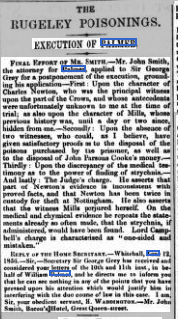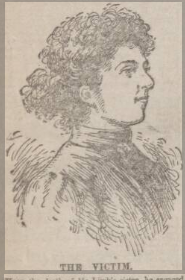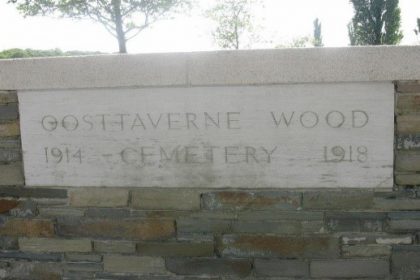Arthur Wellesley, Duke of Wellington, has it been gathered to his fathers. He died on Tuesday afternoon, Walmer Castle, after succession of epileptic fits.
The decease of the greatest warrior of the age the hero of a hundred fights—cannot fail to produce deep emotion in the hearts of all Englishmen. Born 1709, the year in which so many great geniuses, now passed from the scene, first saw the light, and called early in life to prominent position the profession to which he devoted himself, his military career was an almost unbroken series of splendid successes, and justly earned for him the title the Greatest Captain of the Age.
These successes were owing to combination of qualities rarely found in one individual—quick perception, cool judgment, unflinching firmness, iron nerve, untiring energy, keen foresight, and, in whatever he undertook to perform, whether small things or great, an overwhelming sense of duty. Such were the characteristics of the great Duke—first brought into play in India, afterwards developed the Peninsula, and finally reaching their acme of maturity on the field of Waterloo, when pitched in battle against him who had threatened to overrun the world with his conquests. Generations of men,” says the Times, had passed away between the first exploits of his arms and the last counsels of his age, until, by lot unexampled in history, the man who had played the most conspicuous part the annals of more than half a century became the last survivor of his contemporaries, and carries with him to the grave all living memory of his own achievements. To what a century, to what country, to what achievements was that life successfully dedicated For its prodigious duration —for the multiplicity of contemporary changes and events, far outnumbering the course of its days and years—for the invariable and unbroken stream of success which attended it from its commencement to its close, from the first flash of triumphant valour in Indian war to that senatorial wisdom on which the Sovereign and the nation hung for counsel to its latest hour—for the unbending firmness of character which bore alike all labour and all prosperity—and for unalterable attachment to the same objects, the same principles, the same duties, undisturbed by the passions of youth and unrelaxed by the honours and I enjoyments of peace and of age—the life of the Duke of Wellington stands alone in history.”
The part which the Duke of Wellington bore as a politician after the close of the war, somewhat dimmed for a time the lustre of his renown as a soldier. He was the avowed enemy of all Reform, and yet it so fell out that he assisted in the passing, of all the great Reforms the age—the Catholic Relief Bill, the Reform Bill, and Free Trade. He resisted the demands of the people so long as he considered them unreasonable, but when he found resistance longer safe or prudent, he bowed to the necessities the times, and on more than one occasion his influence operated strongly iii unbending the stubborn resolutions of peers who, though lacking his own sagacity, reverenced his opinions, and were not unwilling in important crises to follow his example and be guided by his advice.
The manner and the time of the Duke’s death present some grounds for congratulation. He had lived to a ripe old age—for he was in his 84th year —and while he has been spared the pain of a protracted and slow decay of nature, his countrymen have the satisfaction of reflecting that he quitted, with his mental faculties scarcely impaired, the scene of his well won and almost unparalleled honours.
BNA © Carlisle Journal, CARLISLE, FRIDAY, SEPTEMBER 17, 1852.







